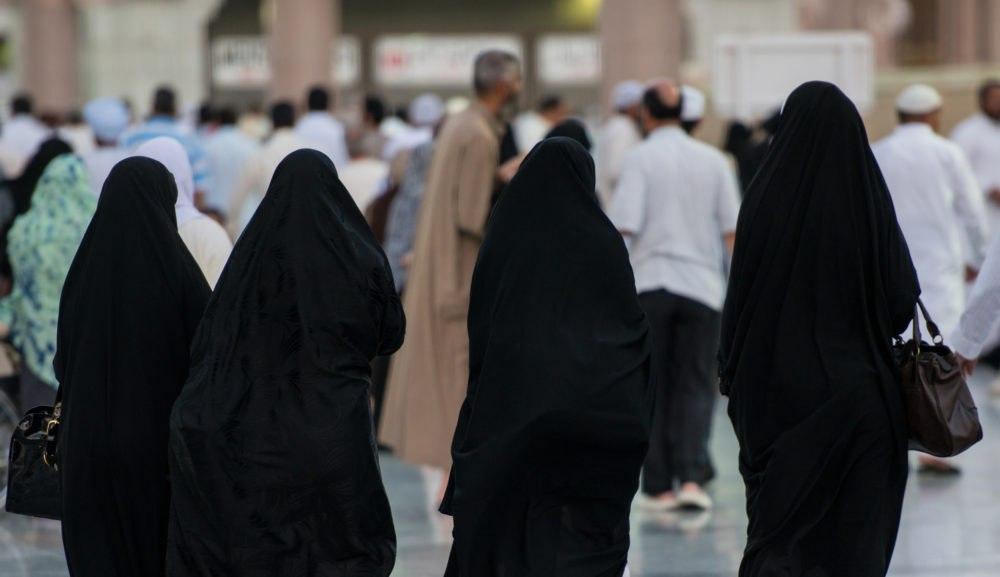
At this moment, in southwest Saudi Arabia, a bus is transporting four sisters who are being forcibly and arbitrarily deported to Yemen as a result of a deportation order issued by the Ministry of Interior. The order came in spite of a domestic abuse case pending before the court, involving the girls’ father. The second hearing in the case will be held on 10 September 2020.
The sisters are Hana, 31, Hoda, 30, Sarah, 22, and Hajar, 21. Their case began when they sent a telegram to Crown Prince Mohammed bin Salman, appealing for his protection and fairness due to their father’s abuse and neglect by failing to support and care for them and by depriving them of marriage.
The telegram was transmitted to the al-Nuzhah police but was ignored without explanation. Thereafter, the sisters lodged a complaint with the Public Prosecution, which set up two investigative sessions with them; however, it subsequently halted the investigations.
The father then forced the mother to file a complaint against her daughters with the al-Nuzhah police, claiming that they had beaten her, or he would kill the daughters. Under fear and threats, the mother was compelled to file the complaint, which she signed without being able to read because she was illiterate. The complaint said that the girls were “disobedient to their parents,” and on that basis the girls were held in al-Nuzhah police custody until two o’clock in the morning.
The young women were then transferred to the Dhahban Criminal Prison and held there for seven days, until a letter from the emir of the region ordered them moved to the dar al-himayah [family protection home]. While they were in the home, the girls’ father submitted a final request for them to be deported to Yemen with their mother.
Thereafter, while they were still in the protection home, the young women filed suit in the court requesting financial maintenance [nafaqa]. However, the judge threw out the request on the basis of the deportation order, saying that they can receive financial maintenance in Yemen. The girls also requested housing, but the judge refused because they were being housed in the protection home. The sisters won a motion requesting their papers proving their identity—which we were able to obtain—as well as a ruling reuniting them with their mother. They then filed an “’adhal” suit against their father, which would allow them to marry, but the judge rejected the claim on the grounds that there is no husband at the present time.
The sisters are now being deported, after one year and seven months of imprisonment in what Saudi Arabia calls a “protection home for girls.” Throughout this period, their legal processes were obstructed, and they were not assisted in implementing the court’s ruling ordering their reunification with their mother.
Many attempts were rejected. The girls were treated as the legal property of the abusive and difficult father, and neither the mother nor the older brother was allowed to assume legal responsibility for the daughters, due to the father’s tyranny.
The protection home’s employees worked against the young women despite their case pending before the court. In a clear violation of the still unresolved court case, their hands were bound like criminals, and they were sent to the shelter center in al-Shumaisi, a prison where all foreigners pending deportation wait, including criminals. The shelter center refused to receive them at first due to the pending case, but it eventually processed and deported them.
Today, the Yemeni consulate in Jeddah, in a letter to the al-Shumaisi shelter center, confirmed the threat to the girls if they are deported, stressing the existence of the pending, still unresolved case. However, the letter was rejected and disregarded.
The young women’s situation calls into question Saudi Arabia’s implementation of Article One of the Law of Protection from Abuse, which defines abuse as “any form of exploitation; physical, psychological or sexual, or the threat thereof committed by an individual against another exceeding the limits of powers and responsibilities derived from guardianship, dependency, sponsorship, trusteeship, or livelihood relationship. The term “abuse” shall include the omission or negligence of an individual in the performance of his duties or responsibilities in providing basic needs for a family member or an individual for whom he is legally responsible.”
Similarly, Article Ten of the same law states: “The Ministry shall take into account—when dealing with any case of abuse—the degree, kind, and frequency of violence, provided that any of the means used in treatment do not result in greater harm to the victim, or adversely affect his family or livelihood. In dealing with abuse cases, priority shall be given to preventive and counseling measures, unless the case requires otherwise.” However, it is clear that the harm against the four young women escalated until it reached the level of deportation and destruction of their family.
Handing over the sisters to family members in Yemen who are related to their abusive and adversarial father clearly puts their lives at risk. The deportation, if not immediately rectified, is sure to tear apart the family. This case confirms that many girls and women may face this fate because of abusive fathers.
